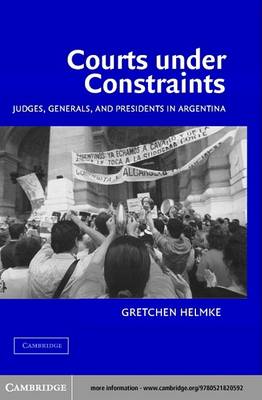Cambridge Studies in Comparative Politics
2 total works
Why does institutional instability pervade the developing world? Examining contemporary Latin America, Institutions on the Edge develops and tests a novel argument to explain why institutional crises emerge, spread, and repeat in some countries, but not in others. The book draws on formal bargaining theories developed in the conflict literature to offer the first unified micro-level account of inter-branch crises. In so doing, Helmke shows that concentrating power in the executive branch not only fuels presidential crises under divided government, but also triggers broader constitutional crises that cascade on to the legislature and the judiciary. Along the way, Helmke highlights the importance of public opinion and mass protests, and elucidates the conditions under which divided government matters for institutional instability.
This study offers a theoretical framework for understanding how institutional instability affects judicial behavior under dictatorship and democracy. In stark contrast to conventional wisdom, the central findings of the book contradict some assumptions that only independent judges rule against the government of the day. Set in the context of Argentina, the study uses the tools of positive political theory to explore the conditions under which courts rule against the government. In addition to shedding light on the dynamics of court-executive relations in Argentina, the study provides general lessons about institutions, instability, and the rule of law. In the process, the study builds a set of connections among diverse bodies of scholarship, including US judicial politics, comparative institutional analysis, positive political theory, and Latin American politics.

